Therapy dogs are often used in hospitals and nursing homes, but they also visit schools, churches, libraries, and other settings.
They assist in companionship for children, young adults, seniors, recovering adults, and military veterans. Visit our blog to read a list of the 18 best therapy dog breeds list all dog lovers will love.
Sometimes, we all need a bit of help. And therapy dogs are here to provide that help. Therapy dogs are specially trained to visit hospitals, nursing homes, and schools to provide emotional support to people in need.
Therapy dogs touch our lives in many ways, and they can be amazing companions. However, each therapy dog is unique in size, appearance, and personality.
So, if you’re thinking about getting a therapy dog to give and receive love and support, make sure to do your research on which type of dog fits you best.
Here are some great options for you if you want a Therapy Dog:
1. Poodle

In the world of animals, some of the most popular are dogs. They are the most playful and the most rewarding. Dogs are also very loyal and protective.
However, not all dogs are created equal. When people think of dogs, different breeds come to mind. Some of these breeds are more popular than others. However, one breed stands above all others: the poodle.
The poodle is a small, water dog known for being a master of stunts and tricks. It has a very dense and springy coat that is kept in a lion-like mane. Its alert ears point forward, and its large eyes are set apart and have a curious and intelligent expression.
2. Beagle

If you are looking for a good therapy dog, you may want to look to the Beagle. They are curious, playful, energetic, and gentle dogs, making them a perfect choice for therapy.
Beagle is the most popular breed of dog for therapy work. They are particularly good at visiting hospitals because of their friendly personalities and their gentle nature.
A therapy dog, the Beagle, provides affection and comfort to both people and other animals in need. They are trained to be calm and affectionate with people who need it, and they rely on a special bond with their owner to focus on their job.
There are lots of specialties that a dog can perform as a therapy dog. (Some are trained to detect a medical condition, others are trained to help a person with a disability, or even trained to guide a blind person or comfort someone who is grieving.)
3. Chihuahua

Chihuahuas were once the runt of the dog litter, but these days they are truly a dog with many personalities.
Chihuahuas are one of the most popular dog breeds, and their popularity is growing as people learn more about their unique personalities and how very smart Chihuahuas are.
When people think of therapy dogs, they often think of a Golden Retriever, Labrador Retriever, or another dog with a strong temperament.
However, Chihuahua is beginning to make a name for itself in the therapy dog industry as well, in part because of its small size.
Because a Chihuahua is very portable, it can be taken into a facility or a hospital to visit people who may not be up to going outside to visit a therapy dog.
Since a Chihuahua’s bark is much less severe than that of a larger dog, a Chihuahua is less likely to cause a disruption to others in the environment.
4. Yorkshire Terrier

If you are looking to get a dog to help you through a difficult time, then a Yorkshire Terrier may be the right dog for you.
The Yorkshire Terrier is a small breed of dog in the toy group. They are known for their playful and energetic temperament and their distinctive white and black coats.
According to PetBreeds, the Yorkshire terrier has a life span of 12 to 16 years.
5. Pomeranian
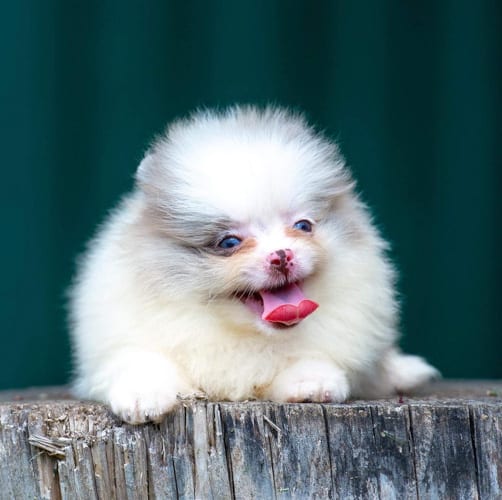
The Pomeranian was bred to be a hunting dog to help hunters flush out prey and retrieve birds. Pomeranians were also kept as pets.
Queen Victoria owned several Pomeranians, and the breed became very popular in the 19th century. Pomeranians were featured in a series of books by Eric Knight, known as the Lassie books.
Writer Eric Knight was a British soldier who had been stationed in Pomerania during World War I. Knight was inspired by the bravery of a small Pomeranian dog named Tich during the war. Pomeranian is a really good option when you want a Therapy dog.
6. French Bulldog

Small, people-friendly, and intelligent, the French Bulldog is the perfect pet for the urban lifestyle. These dogs were originally bred to be used as guard dogs, and to this day, they remain extremely loyal to their family.
French Bulldog are naturally well-behaved puppies and can be easily trained to perform tricks, like playing fetch, giving high fives, and even walking on their hind legs!
7. Pembroke Welsh Corgi
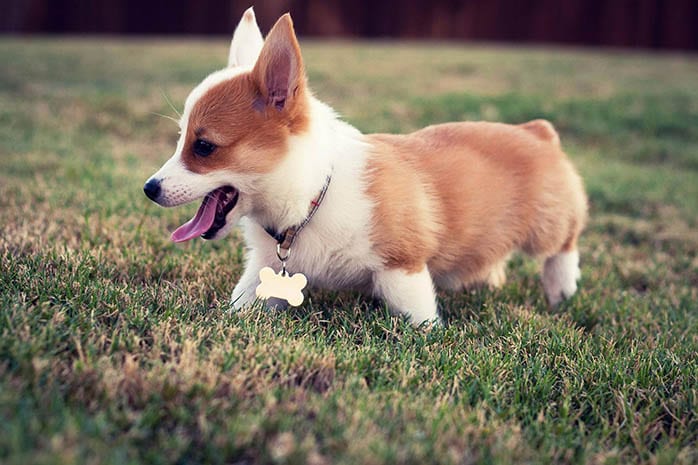
Corgis are intelligent and friendly dogs that love people, and they are often used by the police and the military, as well as search and rescue teams.
While they have their special personality, they respond well to training and are very loyal. They are easy to handle because of their small size, and they will not knock over a child or a wheelchair.
They are also great with senior adults, as they have a low center of gravity and move slowly, which means they can prevent an elderly person from falling over. Corgis are also a good choice for pet therapy.
9. Cavalier King Charles Spaniel

As the name suggests, the Cavalier King Charles Spaniel is a breed of a small dog considered a lap dog for centuries. The Cavalier is a very affectionate breed, and like most lap dogs, they are also generally quite friendly.
What this means in terms of therapy dog certification is that this breed is an excellent candidate for obedience training, as well as public service work and, in some cases, therapy work.
However, it is not a breed that is well suited for being left alone for eight hours a day, every day.
10. Italian Greyhound

The Italian Greyhound has a fair amount of health issues that it faces throughout its life, but you probably would not know this by looking at one.
These dogs are very good at hiding their issues, but these issues do not mean that they can not become therapy dogs. Many of these dogs have learned how to make their ailments work for them. They have learned how to use it as a tool to help people with disabilities.
11. Dachshund

As you may know, Dachshunds are one of the most popular dog breeds in the US. What you may not know is that they are often used for therapy.
Dachshunds are great for kids with autism. They are patient, and they don’t bark at kids who make loud noises. They are also great for people who have to be in hospitals because they make friends with the nurses and stay by their side without being a nuisance. For these reasons and more, dachshunds make great therapy dogs.
12. Pug

Dogs have been man’s best friend for millennia, but using them as therapy animals is a modern phenomenon. Companion animals have been used for centuries to help people with disabilities, including physical, developmental, psychiatric, sensory, and mental disabilities.
More recently, however, animals are used to help people with various conditions that may not be as well documented. Several universities have programs that provide assistance dogs to students with disabilities, including psychiatric disorders.
The University of California, San Diego (UCSD) is one such university, and people with disabilities can sign up for a service dog from the Assistance Dog Center. One such service dog is a rescue pug named Marshall, who serves as a therapy dog.
13. Saint Bernard

Saint Bernard dogs were originally bred to be rescue dogs, and they are still used in that capacity today. (Their enormous size makes them particularly well-suited for finding lost skiers and hikers.)
However, the growing popularity of Saint Bernards as pets has also led to their use as therapy dogs. While Saint
Bernard is a large, powerful dog, he is also known for his gentleness and willingness to listen to his owner, friends, and family.
Combined with his strength, this makes him a great dog to have around children. As a result, some hospitals have started using Saint Bernards as therapy dogs to help children with cancer.
14. Airedale Terrier
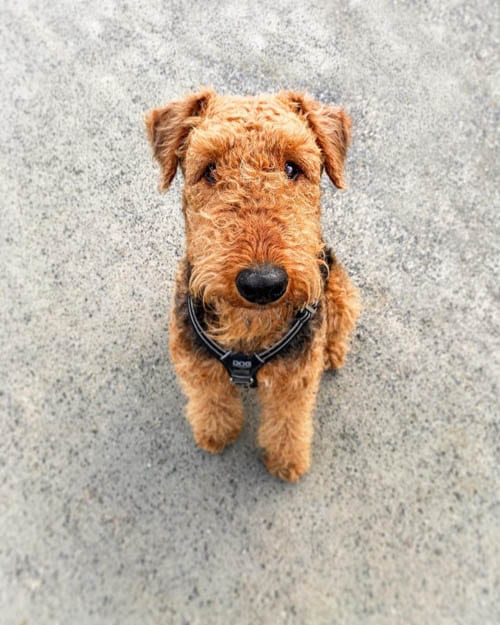
Thanks to their history as hunting dogs, Airedales have a sense of adventure and loyalty, perfect for the job. Gaining weight is another matter.
Obesity is a common problem in Airedales, and it is especially harmful to older dogs. No matter how much you love your dog, putting an older Airedale in regular exercise is often not a viable option.
Luckily, researchers have discovered a way to use a dog’s natural talents to keep them healthy.
15. Irish Setter

Ireland has several lively, spirited dogs that were bred for hunting and herding. Yet, one breed has become a favorite companion to many families: the Irish Setter.
The breed is known for its beauty, athleticism, and sweet disposition, making them the perfect addition to any family looking for a dog that will be a lifelong companion.
However, there is much more to be said about the Irish setter that adds to their unique quality.
16. Labrador Retriever
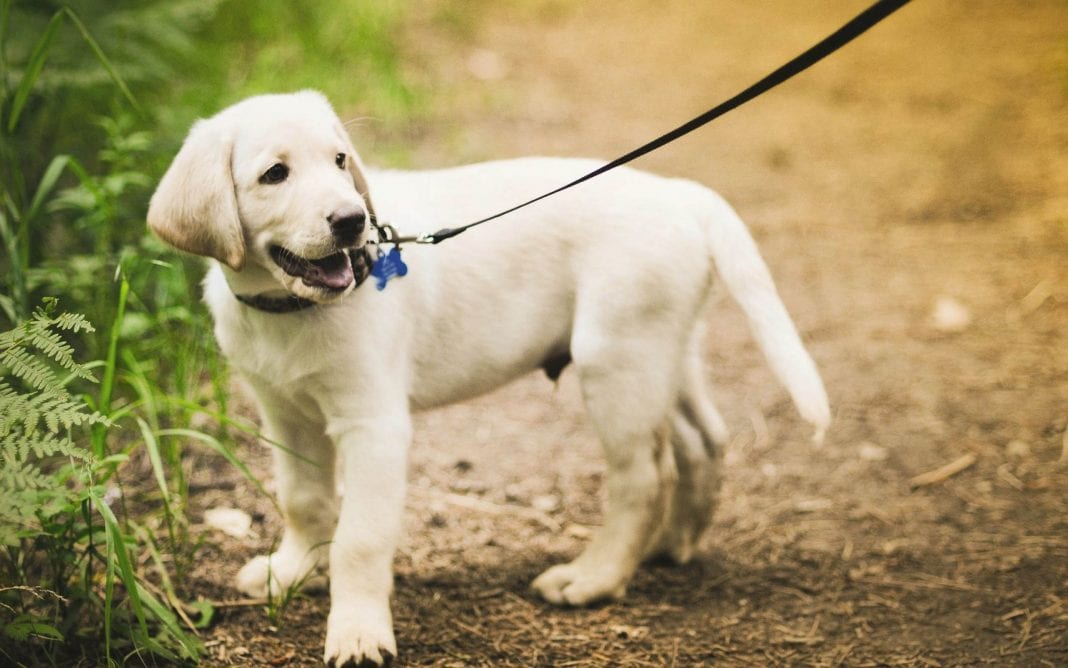
The Labrador Retriever is probably the best-known dog breed in the US. The Lab is a large, solidly-built, short-haired dog with a strong, square body and a nice otter tail.
The head is wide and deep with a muzzle that is shorter than it is broad. The Labrador Retriever has a strong, athletic, well-muscled body but is rather lightly boned. Labradors have an excellent reputation as family pets and as working dogs.
They are a very popular breed for families, and they are used for many dog sports. Because of their gentle personality, Labradors are known as ideal family dogs.
17. German Shepherd
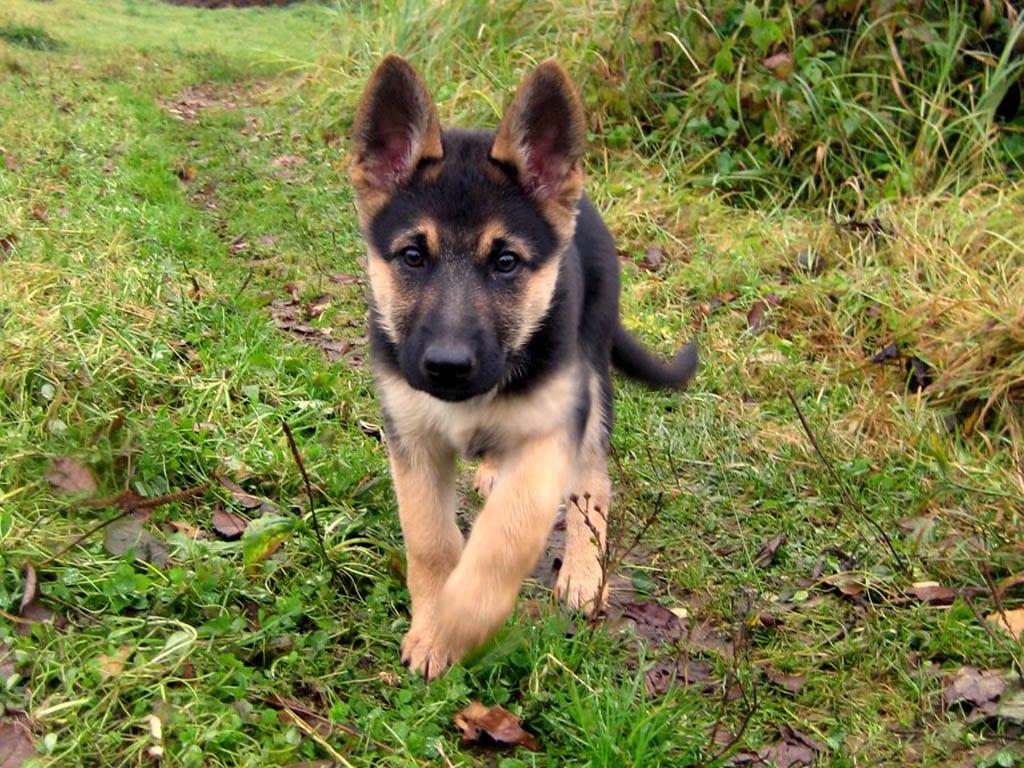
As a German Shepherd owner, you know that she is one of the best dogs for families and many people want to have her as a pet in their family.
German Shepherds are very loyal, smart, self-confident, and brave dogs. They are great with kids and will always protect them. This makes German Shepherds an excellent choice for therapy dogs.
18. Greyhound

They say that pets have the power to heal and Greyhounds certainly do. These gentle, affectionate dogs have a unique ability to calm and soothe people suffering from depression, anxiety, and loneliness. T
heir quiet nature and calm demeanor can brighten the lives of seniors living in nursing care facilities, as well as children who are sick or disabled.
Now you have great options to choose from. You can pick depending on your preference so that you can finally pick the perfect buddy or therapy dog for you.
The one that you will pick can surely give you a lot of fun and happiness as a companion. You will surely love the time with your furry friend.
